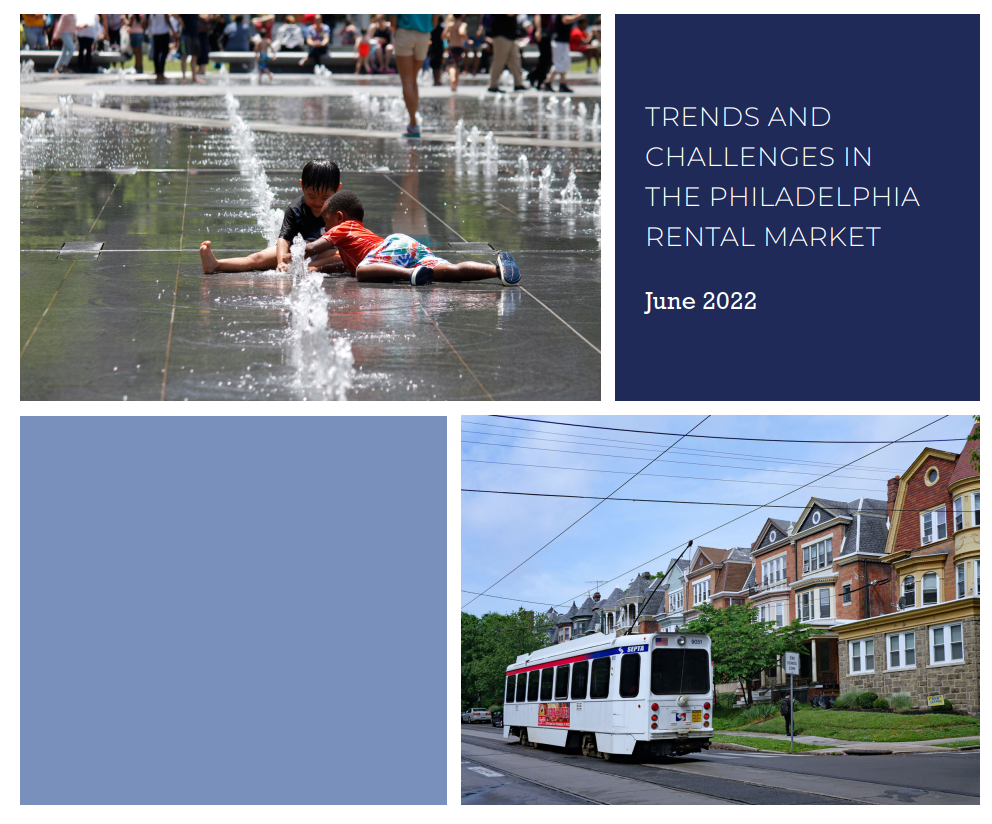Report: Trends and Challenges in the Philadelphia Rental Market

We are excited to share our report, Trends and Challenges in the Philadelphia Rental Market. CLS partnered with the Housing Initiative at Penn to produce a survey focused on four important issue areas: the rising cost of rent, the rate of illegal evictions, the effect of past eviction records on ability to secure quality housing, and the repair concerns that renters in the city are facing.
The results presented in this report come from what we believe to be the largest survey of renters ever conducted in the city of Philadelphia. They also quantify experiences, such as illegal eviction, for which reliable data have never previously been available. As a result, this report offers a new, more comprehensive overview of housing needs and experiences in Philadelphia, although we cannot claim it is representative of experiences and exposures across all renters.
The data support several key findings. First, many households currently face high levels of rent arrears. Specifically, 60 percent of survey respondents reported being behind on rent, owing an average $2,698. Many households also borrowed money to pay rent, often from family and friends. Both arrears and long-term debts may be impossible for many households to repay, especially given the City of Philadelphia no longer has funding for its rent relief program. At the same time, rents continue to increase. Among those who experienced a rent increase in the past year (35 percent of respondents), the average increase was $162, or more than 16 percent.
However, as already noted, challenges around housing are not new for many renters. Roughly 14 percent of those who responded to our survey said they have been evicted at some point in the past. While nonpayment of rent is often the precipitating reason for eviction, many respondents report that their nonpayment was due to owner behavior (e.g., the tenant withheld rent because their rental property owner would not make necessary repairs). Further, most survey participants with an eviction history have experienced long-term negative effects, with 80 percent reporting subsequent rental application denial(s). This survey also suggests that Asian and Indigenous households face high levels of eviction, a particularly important finding given that many existing surveys often undersample these two groups.
Illegal evictions—in which landlords lock renters out, threaten them, pay them to move, or otherwise force them to move without a court hearing—are distressingly common. The survey data suggest that 6.8 percent of tenants faced informal eviction in February 2019-February 2020, which is on par with the court-based eviction rate. This rate increased during the COVID-19 pandemic, when legal evictions were temporarily halted. Also noteworthy is the role of third-party leasing or property management companies in informal (including illegal) eviction. During the pandemic, tenants who paid rent to third-party companies rather than directly to their landlords experienced disproportionate rates of informal eviction.
Beyond eviction, the survey results also speak to persistent issues around housing quality that pose serious risks to health and wellbeing. A large majority of renters (82 percent) are worried about the condition of their housing, with pests, mold, and peeling paint being the most common issues. Housing quality conditions are likely to worsen given documented deferred maintenance during the pandemic. Survey results suggest that Black households are disproportionately affected by issues related to housing quality.